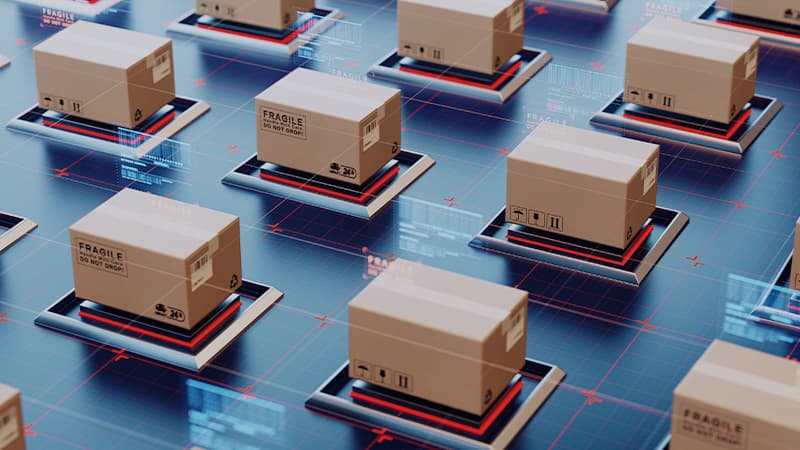December 2018
Blockchain and the Future of Supply Chains

Supply chains are built on trust. In the past, personal relationships and close partnerships formed the backbone of supply chain operations. However, as globalization and complexity increase, these personal connections are becoming harder to maintain.
A weak link in the supply chain, such as an unethical or incompetent partner, can lead to compromised product quality, reputational damage, massive recalls, and financial losses. As companies face these risks, blockchain technology has emerged as a transformative solution, promising transparency, trust, and efficiency in supply chains. But what does this mean for attracting exceptional supply chain talent?
A tamper-resistant trail of transactions
Modern consumer products often pass through a vast network of organisations—from raw material suppliers and manufacturers to logistics providers and retailers. Each step generates data, but this data is typically scattered across multiple systems, making it difficult to gain a clear, end-to-end picture of the supply chain. Inaccuracies and falsified records remain a persistent threat.
Blockchain technology addresses these challenges by using a distributed database where information is stored securely and transparently. Transactions are recorded in a digital ledger that links events chronologically, creating a chain of records. No single authority controls the blockchain, making it highly resilient to tampering and fostering trust among all participants.
While blockchain is best known as the foundation for cryptocurrencies like Bitcoin and Ethereum, it has now found applications across diverse industries, including supply chain management.
How companies are deploying blockchain
In recent years, businesses have developed innovative blockchain-based solutions to enhance supply chain operations. These examples demonstrate how blockchain can increase visibility, improve quality control, and reduce inefficiencies in global supply chains:
- Alibaba continues to expand its blockchain initiatives, utilizing product tagging, QR codes, and authentication technologies to track goods throughout the shipping process.
- Walmart, in collaboration with IBM and other partners, has implemented blockchain technology to track the provenance and storage of food products, addressing risks like food fraud. According to a 2023 study by PwC, while 30% of food companies now actively use blockchain, 25% are in the pilot phase, signaling significant growth in adoption.
- Maersk and FedEx are refining blockchain systems to streamline cargo management and resolve disputes by ensuring consistent, accessible, and verifiable transaction records.
Blockchain and the demand for new talent
Blockchain adoption requires more than just technological upgrades; it demands cultural and operational shifts within organizations. To navigate this transformation, companies are forming specialized Project Management Offices (PMOs) tasked with driving blockchain and digital supply chain initiatives. These PMOs require leaders with a unique blend of skills:
- Technical expertise in blockchain: Candidates must have a deep understanding of blockchain’s functionality and its integration with existing supply chain systems.
- Supply chain transformation experience: Professionals with a background in supply chain consulting, systems integration, and process optimization are in high demand.
- Change management proficiency: Implementing blockchain involves reshaping workflows and securing buy-in from stakeholders across the enterprise.
Does blockchain mean the end of traditional supply chain roles?
Blockchain’s disruptive potential is undeniable, but rather than eliminating traditional roles, it’s transforming them. As Matthew Wood, Managing Director Europe at DSJ Global, explains,
There is a fear that traditional skill sets in procurement and the supply chain could be made redundant by blockchain and automation. It’s certainly a shifting landscape, but automation of low-level transactional work represents an opportunity for skilled candidates to find more time to do the work that delivers real value. We see a bright future for supply chain professionals with strengths in innovation and strategic development.
Strategic roles that emphasize innovation, sustainability, and cross-functional collaboration will become increasingly vital. Additionally, blockchain’s integration with other technologies like artificial intelligence and IoT is opening up opportunities for specialists who can bridge technical knowledge with supply chain expertise.
